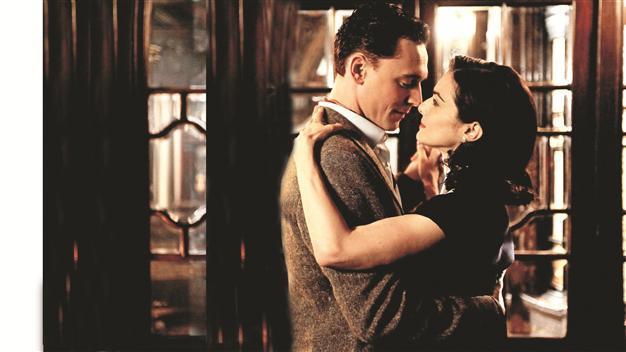Davis retells Rattigan's play in his new film
ISTANBUL - Hürriyet Daily News

“Deep Blue Sea” by British director Terence Davies, which opened the 31st Istanbul
Film Festival, is a careful exploration of the dead-end of restricted lives at both ends of the social scale. Based on Terence
Rattigan’s play of the same name, the film tells the story of a woman in England in the 1950s, who dares to ask for more than what she is supposed to settle for.
However, Davies is hardly the biggest fan of period dramas, considering the contemporary tendency in British filmmaking towards “heritage Britain” or “stories set in the 30s and Edwardian country houses” to be “deadly.”
“When I was asked to adapt a Rattigan play as part of the Rattigan Trust’s plans to mark the centenary of his birth, I read all of his plays. This text particularly struck me because I just loved the idea that the character does something so unconventional. Middle-class women did not leave their husbands in those days, although they might have affairs,” Davies said. He was granted an honorary award at the opening of the festival.
The central character Hester, played by Rachel Weisz, is married to a judge, Sir William Collyer. However, she falls in love with Freddie Page, a Royal Air Force pilot who fought in the Battle of Britain.

Terence Davies.
The two men represent binary opposites: while Sir Collyer stands for the
old, stiff, aristocratic, cultured, well-educated man of reason, or “judgment,” Freddie represents a lustrous masculinity through his indulgence in bodily pleasures, his youth, childishness and disdain for high culture.
Hester leaves her husband for what she finds in Page, but continues to demand from her new lover what the former was so powerful at: wealth, culture, responsibility and maturity. Neither of these extremes seem to be enough to make her happy, hence a failed suicide attempt. The situation stagnates, with Hester refusing to let Freddie go despite keeping in touch with her husband. In the end, Hester has to release both, but the film does not dictate whether that is for the better.
Grave directorial changesThe screen adaptation of the play required Davies to make some grave changes to the original text, to the extent of even cutting out the whole first act of the play. He also made some modifications to the cultural backgrounds of Freddie and his friend Jackie Jackson. “These two young men are around their mid-twenties, but they were represented in the play like middle-aged men. I know how the 50s were, people liked to talk and dress and behave like their elders. But these men who called each other ‘old man’ in the original text were so dead and out of their age that I had to work on them a little to give them back their youth and life. Otherwise it would be too boring and seem unnatural to the modern audience,” Davies explained.
He also said that Rattigan did not quite understand what it was like to live in the 50s and be working class. “Rather than being true to the period, I chose to be true to the tone of the play, which communicated a sense restricted love in a way that is so very familiar to all of us.”
“Deep Blue Sea” is shown again at 11 a.m. today, at Fitaş Theater in Taksim.
Davis,
 “Deep Blue Sea” by British director Terence Davies, which opened the 31st Istanbul Film Festival, is a careful exploration of the dead-end of restricted lives at both ends of the social scale. Based on Terence Rattigan’s play of the same name, the film tells the story of a woman in England in the 1950s, who dares to ask for more than what she is supposed to settle for.
“Deep Blue Sea” by British director Terence Davies, which opened the 31st Istanbul Film Festival, is a careful exploration of the dead-end of restricted lives at both ends of the social scale. Based on Terence Rattigan’s play of the same name, the film tells the story of a woman in England in the 1950s, who dares to ask for more than what she is supposed to settle for. 